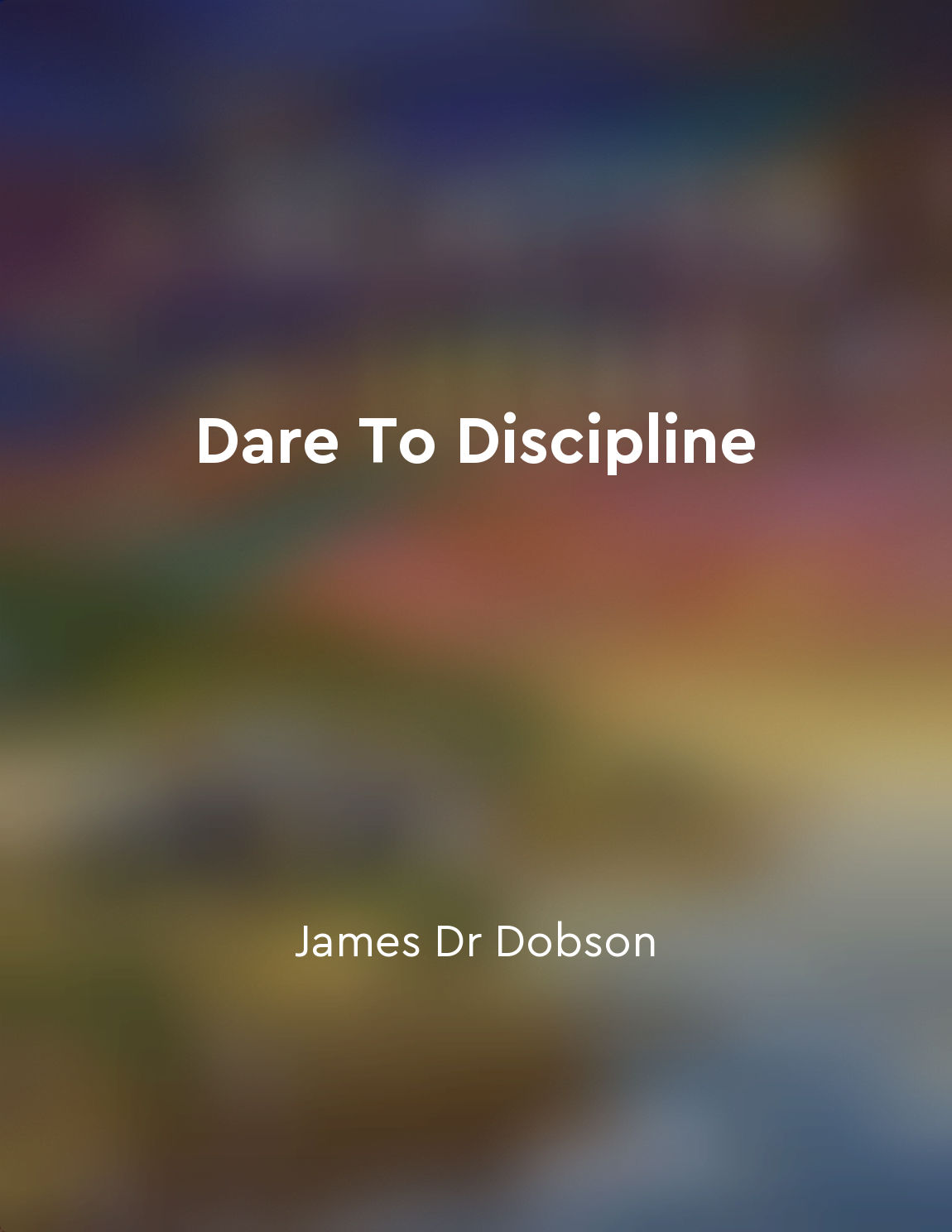Discipline should be fair and ageappropriate from "summary" of Dare To Discipline by James Dr Dobson
Discipline should always be fair and age-appropriate. Children need to understand the consequences of their actions, but these consequences should be reasonable and tailored to their level of understanding. It is not fair to punish a three-year-old in the same way as a ten-year-old, as their cognitive abilities are vastly different. Young children are still developing their sense of right and wrong, so discipline should be gentle and focused on teaching rather than punishing. When disciplining a child, it is important to consider their age and developmental stage. For example, a toddler may not be able to sit still for a long time, so a time-out may not be an effective form of discipline. Instead, redirecting their attention or using simple language to explain why their behavior is not acceptable may be more appropriate. On the other hand, an older child may benefit from more structured consequences, such as losing privileges or completing extra chores. It is also essential to be consistent in discipline. Children need to know what is expected of them and what will happen if they do not meet those expectations. Inconsistency can lead to confusion and frustration, as children may not understand why they are being disciplined in different ways for the same behavior. Consistency helps children feel secure and understand the boundaries set for them. When setting limits and disciplining children, it is important to be firm but loving. Discipline should come from a place of care and concern for the child's well-being, rather than anger or frustration. Children are more likely to respond positively to discipline when they feel supported and understood. By approaching discipline with empathy and respect, parents can build a strong and trusting relationship with their children.- Discipline should always be fair and age-appropriate. By considering a child's developmental stage, being consistent in discipline, and approaching discipline with love and understanding, parents can effectively teach their children right from wrong and help them grow into responsible and well-adjusted individuals.
Similar Posts

Encourage and support your child's interests and passions
When parents take an interest in their child's interests and passions, they are showing that they care about what is important ...
Set your own house in perfect order before criticizing the world
Peterson argues that before you criticize the world, you must first set your own house in perfect order. This means taking resp...
Discipline should be a teaching opportunity
Discipline should be a teaching opportunity in which parents have the chance to guide and mold their children's behavior. It is...
Teach life skills through discipline
The fundamental principle of discipline is to teach life skills. Children who are allowed to do anything they please, whenever ...
Repairing the relationship after a discipline incident is crucial
When a discipline incident occurs, our children often feel disconnected and rejected. This may lead to feelings of shame and un...
Practice patience and understanding in challenging moments
When faced with challenging moments, it can be easy to react impulsively or with frustration. However, taking a step back and p...
Consistent consequences are key
Consistent consequences are the linchpin of effective discipline, just as they are in any other arena of life. They provide str...
Provide consistent, loving discipline
Consistent, loving discipline is an essential component of effective parenting, as it helps children learn appropriate behavior...
Provide specific feedback to encourage positive behavior
When you notice a behavior you like, it's important to give your child specific feedback. Instead of saying, "Great job!" try t...


